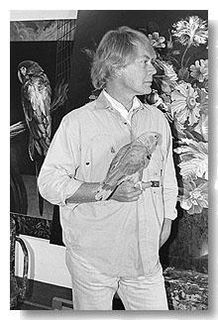A Quote by Mark Fisher
Although it was published in 1977, "A Scanner Darkly's" mood is already postpunk.
Related Quotes
'Royal Beatings' was my first story, and it was published in 1977. But I sent all my early stories to 'The New Yorker' in the 1950s, and then I stopped sending for a long time and sent only to magazines in Canada. 'The New Yorker' sent me nice notes, though - penciled, informal messages. They never signed them. They weren't terribly encouraging.
I was first published in the newspaper put out by School of The Art Institute of Chicago, where I was a student. I wince to read that story nowadays, but I published it with an odd photo I'd found in a junk shop, and at least I still like the picture. I had a few things in the school paper, and then I got published in a small literary magazine. I hoped I would one day get published in The New Yorker, but I never allowed myself to actually believe it. Getting published is one of those things that feels just as good as you'd hoped it would.
My idea of a perfect surrealist painting is one in which every detail is perfectly realistic, yet filled with a surrealistic, dreamlike mood. And the viewer himself can't understand why that mood exists, because there are no dripping watches or grotesque shapes as reference points. That is what I'm after: that mood which is apart from everyday life, the type of mood that one experiences at very special moments.



































